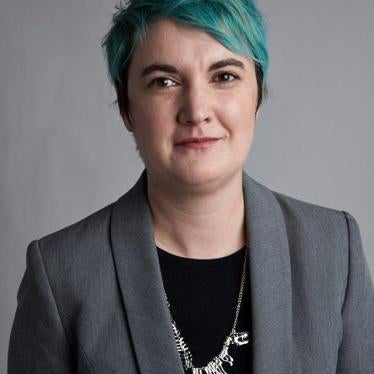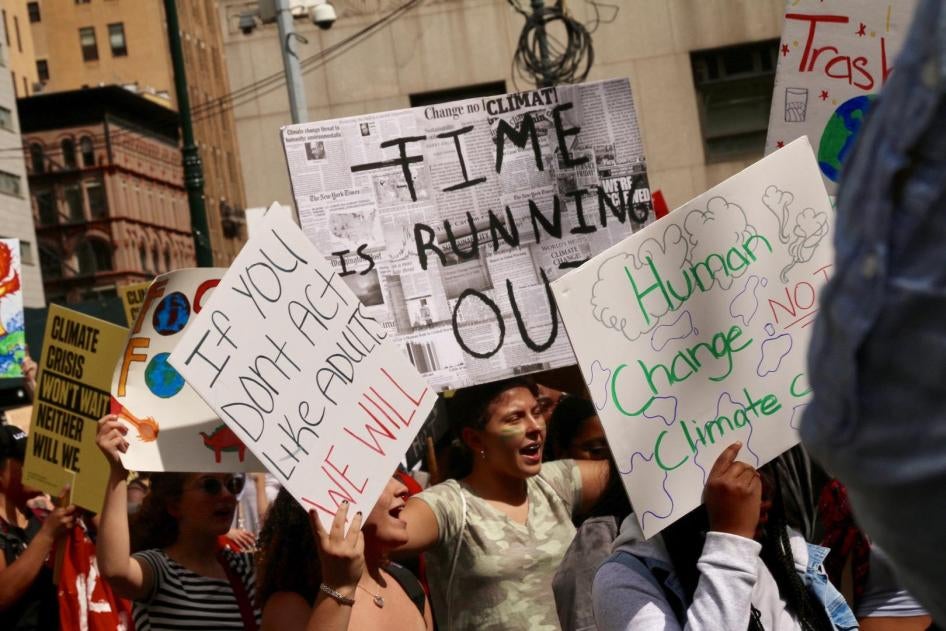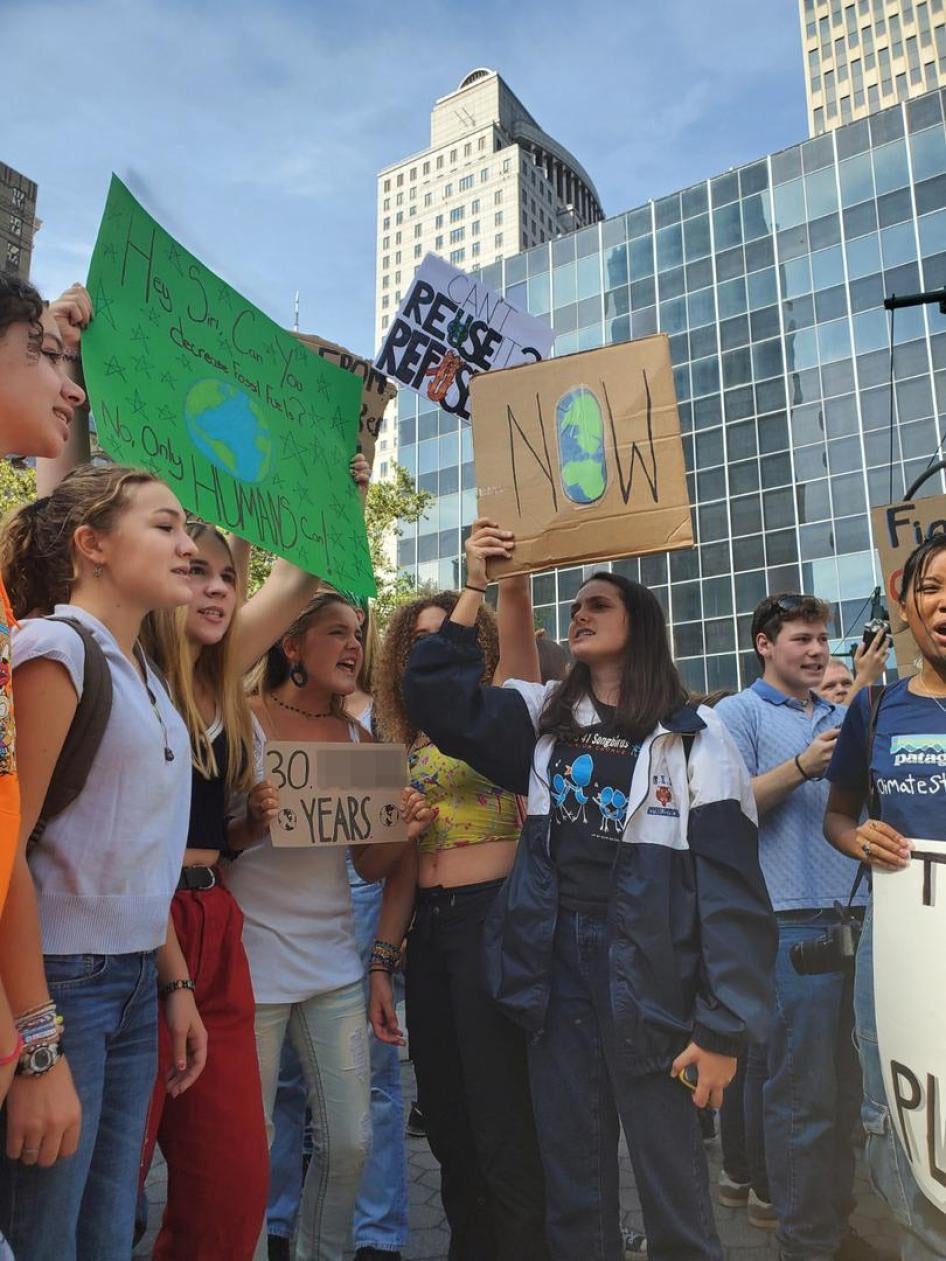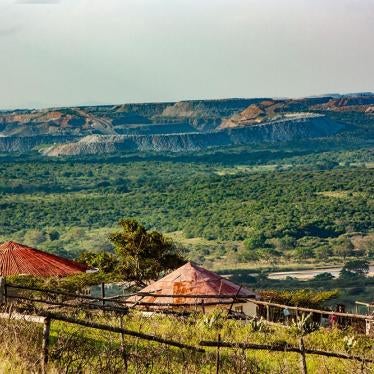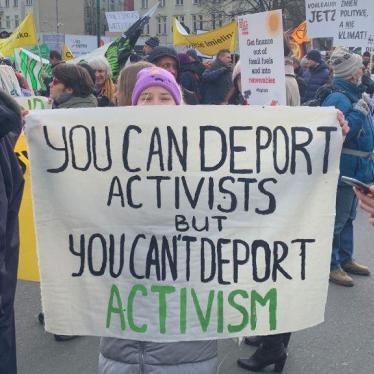Looking down at his shoes, his hair falling across his eyes, 11-year-old Axel had just finished explaining why he didn’t want his favorite animals to go extinct.
“Do you think if adults don’t address climate change it will affect your human rights?” I asked him.
“Well, if a right is to live then, yeah.”
We met Axel, and dozens more like him, at a recent Climate Strike march in New York City.
“The oceans are rising and so are we!” yelled a group of teenage girls, the chant rippling through the gathering crowds.
Each Friday we see pictures of Afghan girls marching with an armed soldier walking ahead of them, children in Russia tweeting about having to stand separately so they are classed as “single strikers” because the government didn’t allow a “mass strike” permit, and here in New York children come out and march for their futures and the future of the planet.
And all the children have a pretty good idea what human rights are; they could teach us something about their right to play, to stay healthy, to live.
Older kids discussed inequity and inequality, how people who will end up bearing the consequences didn’t cause these problems. And they know that many governments aren’t living up to their obligations to reduce greenhouse gas emissions and ensure that the most vulnerable populations can adapt.
World leaders recently gathered at the United Nations General Assembly to talk about climate change, but words are no use without action. Young people from around the world submitted a legal complaint to the UN, asking their governments to limit global warming to the levels identified by science.
Human Rights Watch has been documenting climate change and other environmental harm and the links to human rights around the world. One finding that runs through our work is that the impact of global warming almost always hits the most marginalized people hardest. In Bangladesh, families who watch their land erode from flooding encourage their girls to marry before they are displaced. Girls far younger than those protesting in Foley Square who are married off face an end to their education, early pregnancy, and a life of abuse.
The children we spoke to knew that the rights of millions of children they had never met were at risk because of climate change and government inaction.
Maya, one of the girls leading the ocean chant, was pushed to the front as speaker for her school.
“We’re not going to have shelter, we’re not going to have food, and we’re going to be out of clean water. And when the planet dies, then there’s nothing left for our future.” she said.
These kids don’t have time for weasel words, to be polite to the governments they see failing them over and over again. Like the girl who inspired the movement, Greta Thunberg, none seemed afraid to speak truth directly to power. Sometimes so directly it hits you right in the heart.
I asked 9-year-old Thijmen what he was worried would happen if we didn’t stop climate change.
“That all our forests will burn down and that there will be no ocean left and that we will all die and go extinct.”
There isn’t really anything else to add.
